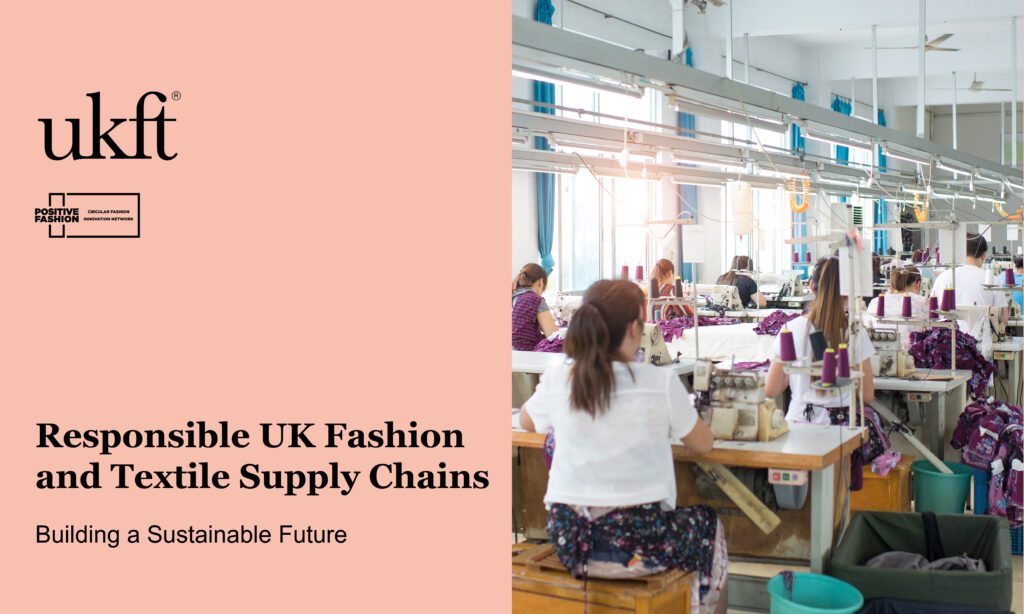Sustainable manufacturing
CFIN is focused on supporting the industry to reduce environmental impact and waste from manufacturing processes from the production of apparel and textiles by 2025, and to achieve to Net Zero by 2050 globally.
The objectives of the sustainable manufacturing pillar are:
- Reshoring for real – exploring volume manufacturing in the UK: through apparel manufacturing parks, network manufacturing through tech and sustainable finishing machinery in denim.
- Enhancing existing UK manufacturing capacity: through automation and robotics, compliance requirements and guidelines and promotion of UK sustainable manufacturing.
- Decarbonising manufacturing: a focus on science and technology innovations in the textile dyeing stage, and zero-waste practices in apparel and textile manufacturing.
Activities
Reshoring for Real:
As part of the reshoring for real work package, UKFT has developed two pilots:
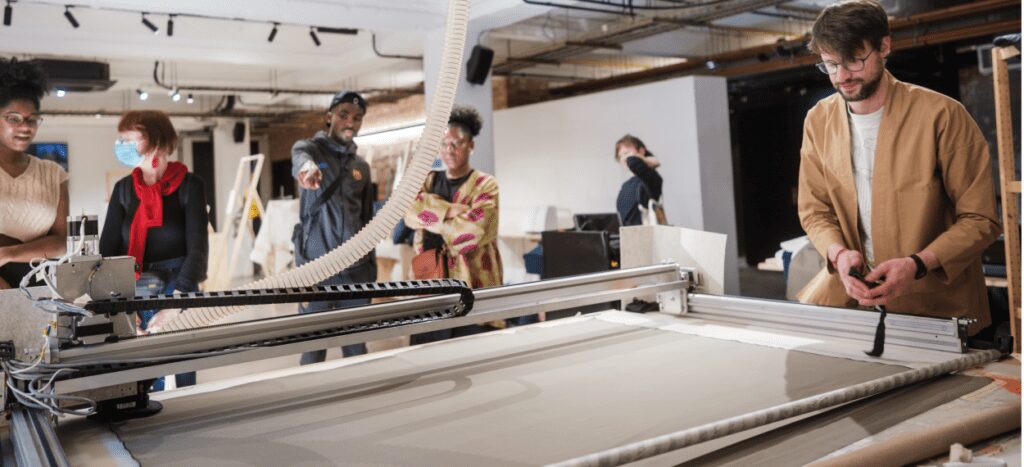
Pilot 1. Using AI technology to encourage re- shoring for the UK’s apparel industry through a distributed manufacturing network: This pilot aims to transform the UK’s apparel manufacturing industry by implementing innovative AI manufacturing technologies with existing manufacturers and accommodating small-batch, agile, Just in Time manufacturing to encourage reshoring of fashion production to the UK. Using ‘Manny’ an AI-powered production planning software, developed by UK-based tech start-up Pattern Project, a leading UK fashion retailer will implement the technology in their existing Leicester manufacturing base. The ultimate goal, after adapting ‘Manny’ to the current retailers’ test and repeat model and production cycles, will be to create a distributed manufacturing network.
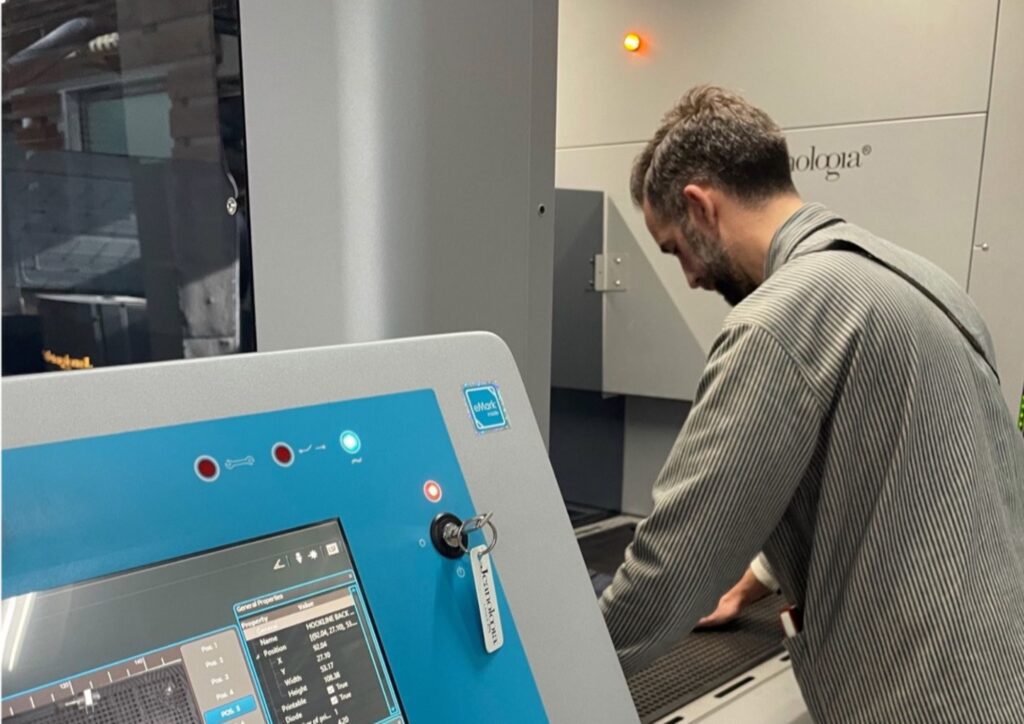
Pilot 2. Denim finishing Near Shore Pilot: UKFT is working closely with LaundRE and a high-street UK retailer to demonstrate that onshore finishing of unwashed jeans is commercially viable for a UK brand. The finishing design and order from Bangladesh will be placed in the upcoming months.
Enhancing existing UK manufacturing capacity
UKFT organised a workshop with the Robotics Living Lab in May in which fashion and textile businesses/organisations were introduced to robotic integrator firms and run a workshop to engage in how they might use robotic processes, collaborative robots and agile tooling within their studio or a micro or SME factory setting.
UKFT also held two separate workshops (one with UK manufacturers and one with UK brands/retailers) to develop a Minimum Compliance Requirements guideline (both social and environmental).
Decarbonising manufacturing:

UKFT has launched the ‘Innovations in Textile and Apparel Dyeing’ report, which highlights the latest global innovations in dyeing within the textile and apparel supply chain, in collaboration with The Manufacturing Technology Centre. The aim of this report is to encourage innovators, brands, retailers and manufacturers to work together so that the industry can collectively achieve our environmental impact reduction goals. We believe that with its significant social, economic and environmental impact both domestically and internationally, the UK is uniquely positioned to drive this sustainability transformation.
Circular Manufacturing Report:
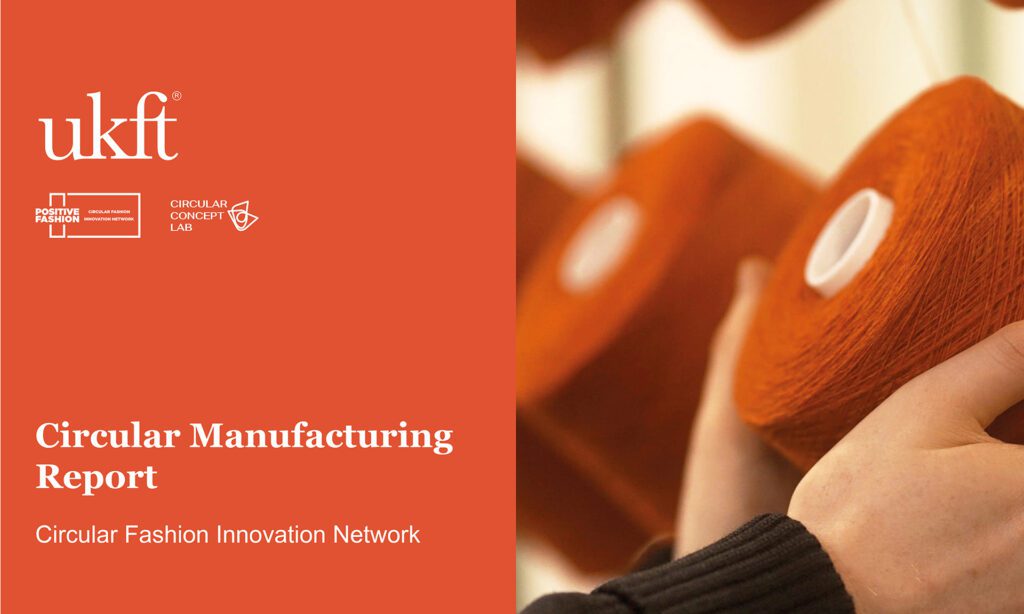
UKFT has launched the Circular Manufacturing Report, which provides an overview of circular manufacturing in the UK textile and apparel industry. It explores current circular initiatives and practices in the sector and presents actionable steps manufacturers can take to integrate circularity into their products and processes.
Advancing automation and robotics for sustainable manufacturing report:
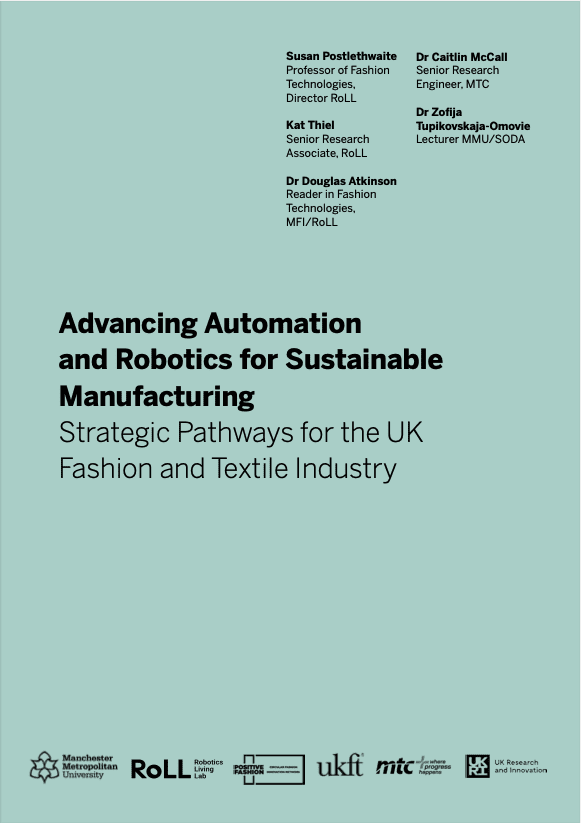
The report examines the challenges and opportunities of integrating robotics and automation into UK manufacturing, offering targeted recommendations for the government and industry to modernise the sector and enhance workforce skills. It suggests that these solutions have the potential to make the UK more competitive in international markets and drive sustainability, net zero manufacturing and a reshoring agenda.
Responsible UK Fashion and Textile Supply Chains Report:
UKFT has published a new report on Responsible UK Fashion and Textile Supply Chains, following workshops with brands and retailers, textile and garment manufacturers, and social and ethical compliance experts. The report is a key step in supporting the UK fashion and textile ecosystem’s reshoring efforts. It identifies practical solutions and opportunities to drive positive change for manufacturers, brands and retailers alike.
The report aims to strengthen social and ethical compliance practices within UK fashion and textile manufacturing to boost domestic production.
Reshoring for Real: The future of domestic UK apparel manufacturing report:
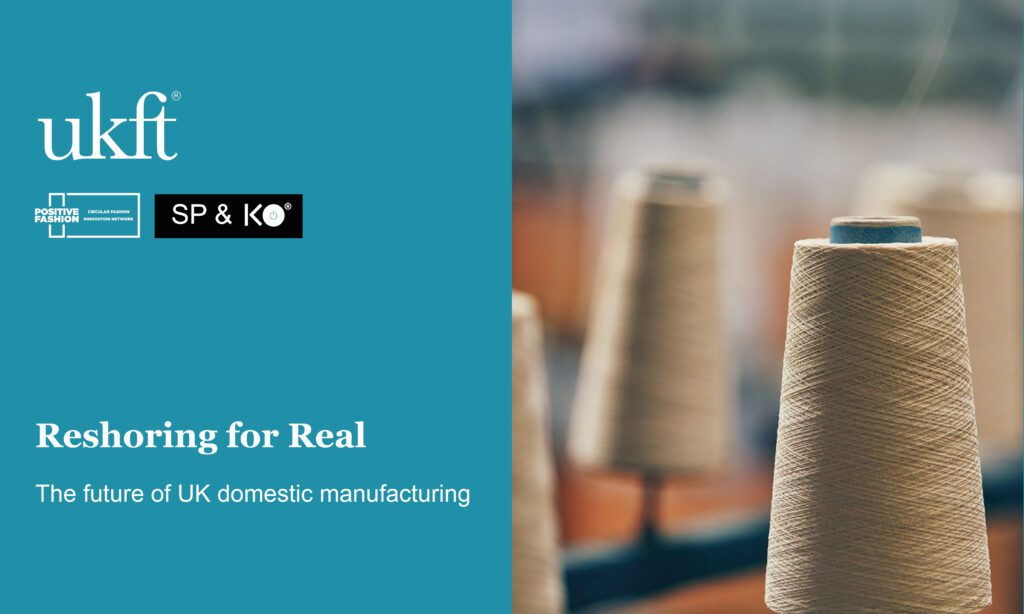
UKFT is delighted to launch the ‘Reshoring for Real: The future of domestic UK apparel manufacturing’ report, which explores opportunities for growing domestic fashion manufacturing. It presents a comprehensive analysis of current sourcing trends as well as future prospects for apparel manufacturing in the UK. The research is based on insights from eight leading UK retailers with a combined turnover of £26.1 billion and operations in 180 countries. It explores current sourcing behaviours, global supply chain dynamics, circularity initiatives and provides recommendations to boost domestic UK manufacturing.
SP&KO consultancy have strongly contributed to the delivery of this report contributing in-depth industry research and ESG expertise.

